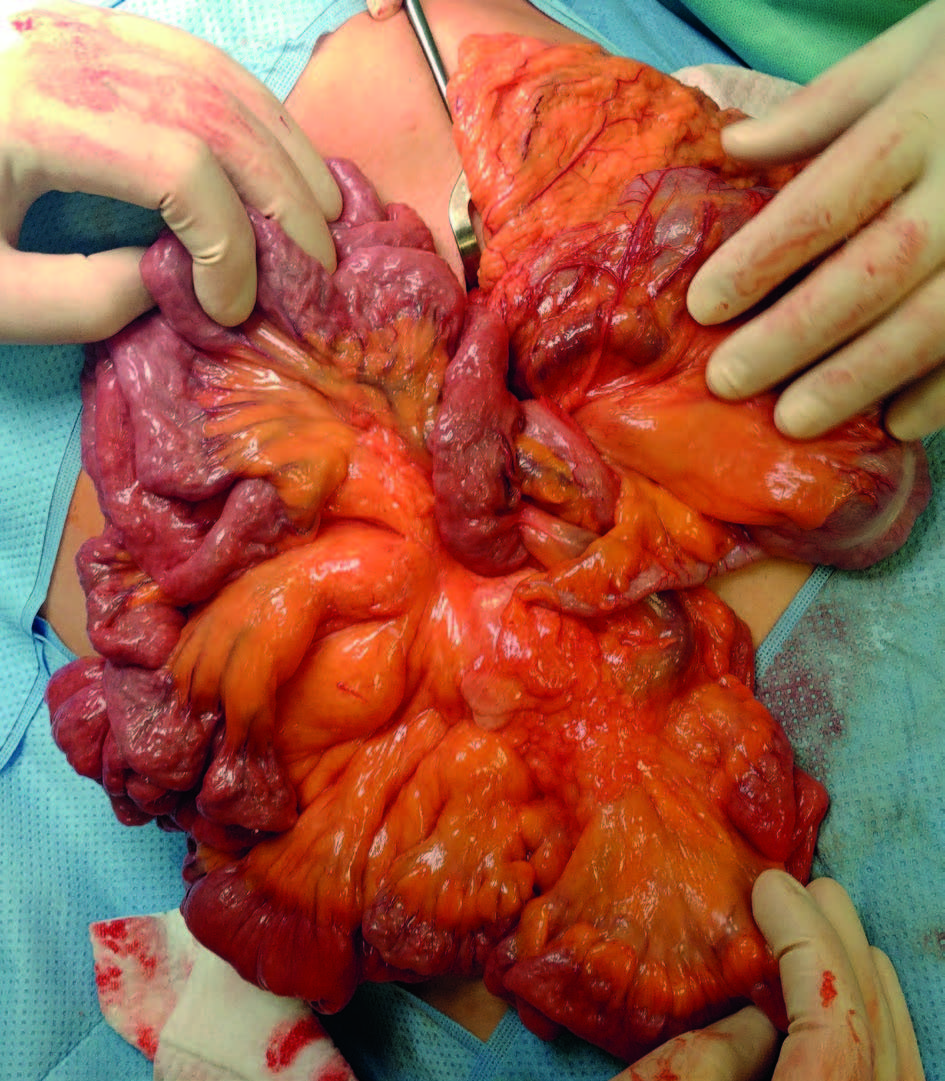Abstract
Introduction: Malrotation is understood as a congenital anomaly of the intestinal position formed during embryonic development. Disorders of intestinal rotation and its manifestations in adulthood are less common; the symptoms of these disorders are characteristic of childhood. An asymptomatic bowel rotation disorder occurs in up to 1 of 200 newborns and symptomatic malrotation occurs in 1 of 6,000 live newborns. The incidence of intestinal rotation disorders in adulthood is estimated to be between 0.0001% and 0.19%. Acute complications in adulthood include volvulus with ischemia of the small bowel.
Case report: A 36-year-old man with a previously diagnosed bowel rotation disorder with intermittent abdominal pain was examined for sudden convulsive pain. The CT scan showed volvulus of small bowel. During surgery, a small bowel volvulus with venostasis and dilated mesenteric veins rotated 360 degrees clockwise, the mesenterium commune, and the presence of Ladd’s bands causing partial compression of the duodenum were found. The condition was managed surgically to derotate the loops into nonrotation with preserved viability of the intestinal loops, interrupt the Ladd’s bands and mobilize the duodenum, including fixation of the mesentery to the retroperitoneum and invagination appendectomy. The patient has been without problems and without any signs of complications based on his 2-year follow-up from the surgery.
Conclusion: Early surgical treatment of intestinal malrotation complications helps maintain intestinal viability and can prevent the development of the short bowel post-resection syndrome. Prophylactic surgery should be considered in symptomatic rotation disorders, although the determination...

